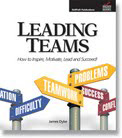This word of leadership advice comes from a good friend and associate, Dan Maltby. Dan holds a PhD. in leadership from The Drucker Institute (I think he knows a thing or two about leadership!) At one time, Dan was administering the Masters in Organizational Leadership program at Biola University. He was also head of The Leadership Project at that institution. Back then I asked Dan, “What are the three most important things I need to know about being an effective leader?” He said…
- Number one: Know thyself
- Number two: Know thyself
- Number three: KNOW THYSELF!

Is this self-knowledge and self-awareness stuff more of the ethereal, elusive “soft skill” emphasis we hear about in leadership, or is there really something of substance to Dan’s advice? The simple answer:
Self-knowledge is not important… it’s ESSENTIAL.
Goffee and Jones claim that self-awareness is a leadership watershed: if you ain’t got it, you ain’t got leadership! They shared the results of their research into effective leadership in a Harvard Business Review article in 2001, and said very clearly that people who lack self-awareness will NEVER be leaders.
Maybe you worked for a boss who lacked self-awareness. People like that live in a bubble of denial about their worst behaviors, habits, and character traits. They will shout at the top of their lungs, “I DO NOT YELL AT PEOPLE” and mean every word sincerely. They are immune to feedback, and impervious to personal growth. Ultimately, they are their own biggest obstacles to leadership success.

Up Close and Personal
I was once assigned an executive coaching client whose colleagues (according to HR) described him as “arrogant, stubborn, insensitive, non-collaborative” and “close-minded.” During one of our sessions, I asked him, “When people disagree with your idea, how do you typically respond?” His answer was very revealing of the problem. He replied, “I just explain to them logically, point-by-point, why they are wrong.” I then pressed for an explanation. I asked him, “Why, exactly, do you do that?” He seemed taken back by that question, as if it were obvious why he responded to critics the way he did. “ISN’T THAT MY JOB?” he said, “Aren’t I getting paid to have good ideas? And if I can’t defend my ideas, how good can they be??”
His response was a perfect illustration of an aspect of human nature I have observed many times in my long career of executive coaching:
We all have a logical reason for our insanity… a reason that makes sense to US.

I think you can imagine how most of his colleagues would respond to his practice of diminishing the opinions and ideas of other people.
I instructed him to respond differently…to say the following:
That’s interesting—tell me more!
Then I urged him to listen carefully to their response—even take notes, to absorb all the details. Then, when they finished, to use the following phrases to end the conversation on a positive note:
Thank you for sharing that—I really appreciate it!
There was a long pause while he collected his thoughts. Then he responded with considerable energy: “You mean, I can’t say anything in reply??? I’m not allowed to rebut their argument or tell them why I think they are WRONG????” I told him, “No. End the conversation on that positive note and walk away with a smile on your face.”
In just a few short weeks, the HR department head reported that feedback from his colleagues was becoming more positive—indicating that his co-workers were now seeing him as much less “defensive” and much more “open-minded” and “collaborative.”
Do you want another reason why self-awareness is so important? Here’s a specific example:
Self-awareness is critical for a hiring manager!
If you want to find, hire, and lead a great team, you must first understand who YOU are (and aren’t!) Joan Magretta (author of What Management Is) puts it this way: “The greater the hiring manager’s self-awareness, the better the new hire is likely to perform.” Here’s why: leaders who understand their own strengths and weaknesses know how to hire people with the strengths they lack; give them appropriate assignments; and STAY OUT OF THEIR WAY and let them perform!

Up Close and Personal
I worked for a CEO who once told me (in all sincerity): “Jim…I can do everyone’s job in this whole organization, and do it better than they can.” I tried not to show my incredulity at this unbelievable (and completely unreal) expression of narcissism. After a momentary pause, I pointed out to him, “But knowing you, Boss, I think you would quickly be bored to death doing the vast majority of them!” He thought for a moment, and then grudgingly agreed: “Well…you’re probably right.”

Leaders who think like this are in danger of becoming intrusive, over-managing, micro-managers…constantly interfering with their subordinates: second-guessing their decisions; over-riding their plans; meddling with their teams; and reducing their ability to operate and work independently, effectively, and efficiently. I’ve seen it a hundred times, and in all types of organizations.
The other danger for non-self-aware leaders is their tendency to hire by supplementation instead of complementation. It’s when the leader decides, “What we need around here is more people like ME!” The beleaguered subordinates who report to this leader find themselves constantly resisting the pressure to THINK like the Boss; TALK like the Boss; ACT like the Boss; and MANAGE like the Boss. It can be maddening for the managers who have a strong voice of their own, and are forced to waste their time and attention on yet another needless obstacle to their success in the organization.

Self-knowledge gives a leader the ability to work well with a team that is armed with a diversity of strengths and gifts. Magretta tells us, “Managers who give in to the ‘just like me’ bias … are only setting themselves up for failure. Increasingly, managers and executives must be able to work effectively in teams that bring together diverse people, skills, and talents.”
If you would like to explore your potential for growth and remove obstacles to your success, we can help! Our coaching fees are reasonable and our clients achieve real results—better performance; better performance reviews; promotions; and new leadership opportunities. And if you want more great ideas for better leadership and management, take advantage of all the great ideas, tips, and tools you will find on this blog.
Until next time… Yours for better leaders and better organizations,
Dr. Jim Dyke – “The Boss Doctor” ™ helping you to BE a better boss and to HAVE a better boss!


